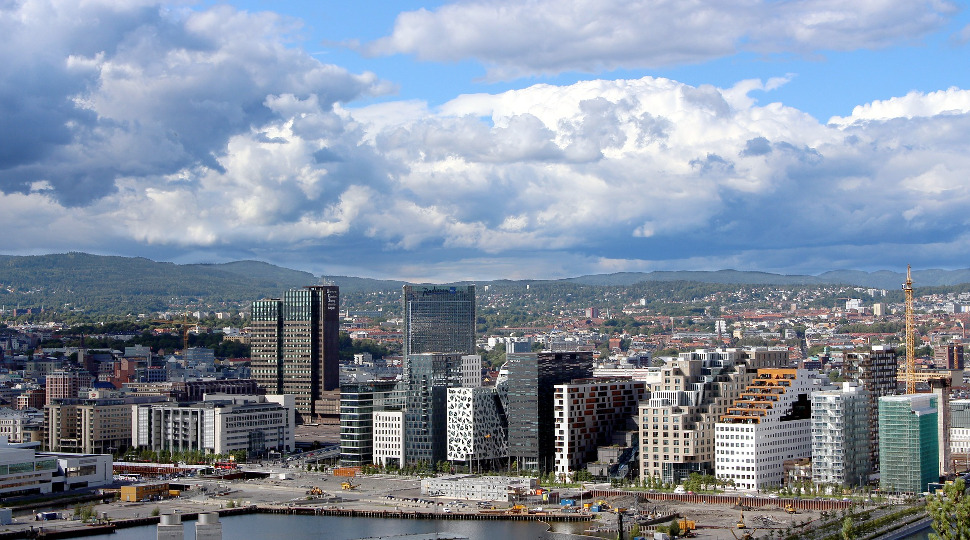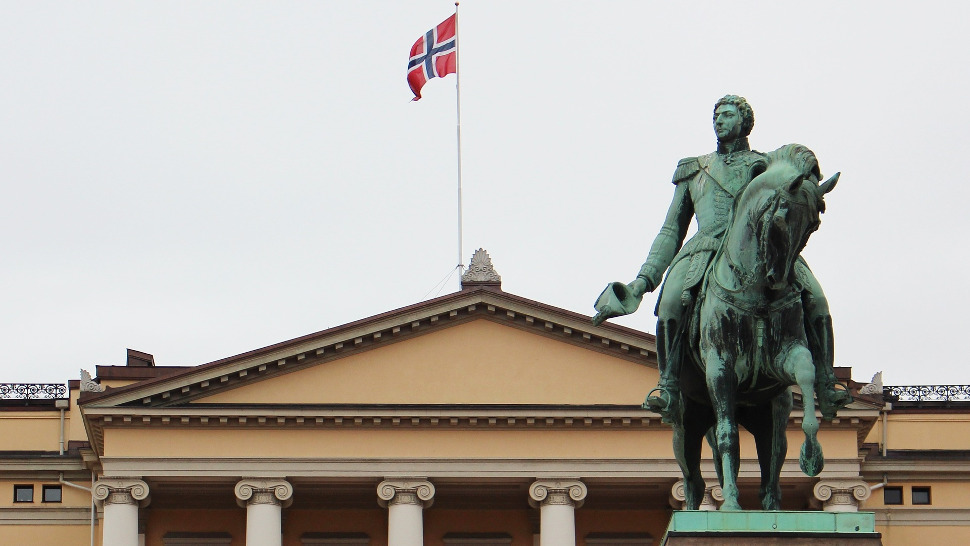Why Norway wants to be the world's next big tech hub
TechRadar Pro heads to Oslo to find out why Norway can be the biggest Scandinavian success story yet.

Sign up for breaking news, reviews, opinion, top tech deals, and more.
You are now subscribed
Your newsletter sign-up was successful
When it comes to the latest big tech breakthroughs, many people would think of California, Singapore or China as the world's top locations for vibrant start-ups.
Norway's economy has traditionally focused around the sea, with oil, gas and fishing among its most famous industries. However as the world gradually comes round to realising these resources are somewhat finite, many Norwegians are instead turning to technology to make their fortune.
TechRadar Pro headed to the land of ice and snow (aka Oslo) to speak to some of the country's top start-ups and investment firms to find out just how close Norway is to being the next big technology success story.

To begin with, that last sentence may have been somewhat of a misnomer. Norway has had several major technology successes in recent years, including the likes of Kahoot, Vivaldi, and probably the most notable, Opera Software.
Former Opera vice president and chief commercial officer Rolf Assev quit the company after 12 years service in the corporate world, and now helps head up Oslo's StartupLab, a dedicated space for fledgling Norwegian firms to grow and prosper.
"When we started six years ago, no one believed in us, because no one believed you could make money of early stage tech start-ups," he tells TechRadar Pro at StartupLab headquarters, on the campus of Oslo's main university.
"People believe we have never done start-ups in Norway...but we have!"
Sign up to the TechRadar Pro newsletter to get all the top news, opinion, features and guidance your business needs to succeed!
At first glance, StartupLab seems similar to the many start-up accelerators found in San Francisco or around London's Silicon Roundabout. Teams of four or five sit around wheeled wooden desks (to ensure easy movement around the floor) or huddle round screens, talking excitedly in meeting rooms.
However Assev explains that behind the calm facade, the selection process is extremely tough as the Norwegian technology scene continues to develop. StartupLab accepts only one in every 10 applicants it receives, he reveals, meaning that competition is fierce to get in.
Assev explains that although Sweden has traditionally been Scandinavia's leading technology hub, Norway is fast catching up. The traditional levels of investment pushed into the west coast of the country, home to the fishing and utility industries, is now instead being focused inland to the cities - offering a great opportunity for tech start-ups.
For StartupLab, it is often the founders themselves that make companies an attractive proposition, Assev says. He highlights Magnus Wanberg, the CEO of reMarkable, an e-screen company that had to take on the likes of Samsung and Google, and Karen Dolva, founder of No Isolation, which builds robot companions for the elderly and children with learning difficulties, as proof that investing in people who believe in their ideas (and plan for the long term) can be the key for success.
"We believe in the founders," he notes, "we believe they are the best people to find out where a company is going."
Businesses, especially start-ups, in other countries often fall victim to a model of rapid initial growth, before being sold or amalgamated into larger companies, Assev says. However in Norway, thanks to much of the investment into start-ups coming from within the country, rather than from abroad, domestic companies are able to keep their independence, and grow organically to achieve greater levels of success.
"There is no one doing the same model that we are doing," he adds, "we did this not to make money, but to give back."
"We don't know what the next steps are just yet - we just know we want to have global successes...and be the place for the best start-ups in Norway."

Over in Oslo's picturesque old town, a snowball's throw from the ornate 17th century cathedral, another organisation is looking to encourage the next generation of Norwegian tech start-ups to break into the big time.
Tharald Nustad and Anders Lier head up Nordic Impact, an angel investment firm that looks to back technology start-ups that are able to do good for the planet.
Scandinavia, and Norway in particular, is well-placed to push this agenda, having long been a key location for new technology fields - from green energy to electric vehicles
Lier, Nordic Impact's executive chairman, notes that technology can "lift the country out of the oil dopmaine, into the new world," with banks, cities, universities and corporate machines all working together to help support a vibrant Norwegian start-up scene.
Lier notes that the dawn of a new "unicorn economy" could be coming to Norway within the next few years - one with the potential to rival the oil boom of the 1970s, which has helped transform the country into the model for progress it is now.
"It's the right time for Norway to leave the oil industry," he says, "we need to find a new future."
"We think more of the learning society - being smart doesn't mean you do the right stuff."

Lier notes that Norway is able to benefit not just from abundant natural resources, but thanks to its oil wealth, can enjoy national cash reserves of around £1 billion - which he believes could be invested into technology.
However Nordic Impact is not just focused on the next big thing or technology trend however, as the company looks to instead solve the big issues facing modern society within the next few decades.
"Looking from above, the question is what is the future of society?" Lier notes, "We don't really know, but it will be a world of abundance."
With less than five thousand working days left until 2030, the need for ituitive, intelligent technologies is becoming more pressing by the day, and this requires new, non-linear business models - such as that provided by Nordic Impact.
"We are optimistic about the future," he adds, "but we can't just leave it to the technology...we have to be on top of it."
"We have the DNA to take risks."

Along with innovation though, collaboration is the key to ensuring humanity benefits from the boost technology can bring.
Nustad, a serial tech entrepreneur and the founder of Nordic Impact, notes how new technology has helped bring people together over the past decades, but adds that physical interaction is important as ensuring we use the latest tools.
Lier again references No Isolation as an example of the good work their investment has helped fund, and states that success will come not just from good technology or good business processes, but how companies work with the communities that surround them.
"There shouldn't be any competition to try and save the world," he observes.
The firm now looks to encourage investment in Norway through its own efforts. This May, it is set to host the Katapult Future Fest in Oslo to show off both the good work done by its existing benficiaries, and highlight the potential of both the city and Norway as a whole to investors both at home and around the world.
"Those in the know, know Norway," Lier notes.
Ultimately, it seems that the excitement around Norway's technology scene is well-placed. A young city, open to new ideas, and ready to benefit from a wealth investment - all of this seems to contribute towards the recipe for a success story. The future of the world when it comes to technology may well be found in Scandinavia, with Norway right at the heart of the action.
- Check out our list of the best laptops for business 2018

Mike Moore is Deputy Editor at TechRadar Pro. He has worked as a B2B and B2C tech journalist for nearly a decade, including at one of the UK's leading national newspapers and fellow Future title ITProPortal, and when he's not keeping track of all the latest enterprise and workplace trends, can most likely be found watching, following or taking part in some kind of sport.